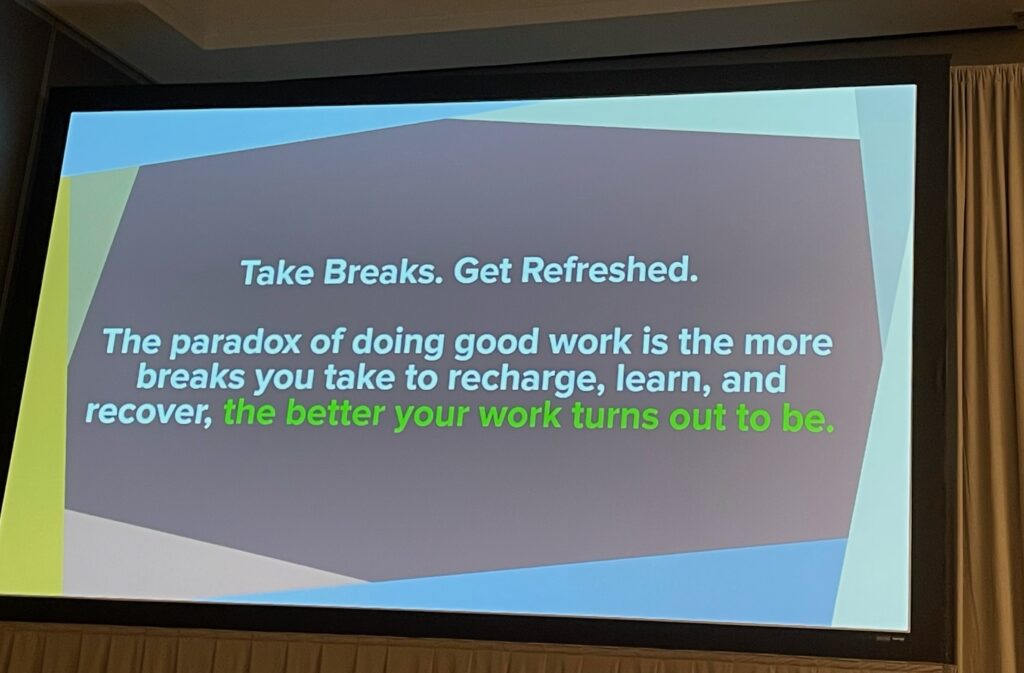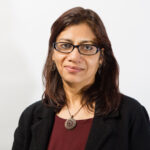
I am among those who prefer not to join book groups or writing groups, often choosing solitude and just one’s subjects for company and craft. For this reason, I had so far kept away from joining any writers’ associations. So I walked into the ASJA conference on the first day with some amount of hesitation.
But my anxiousness would soon be eased in the company of warm, funny, curious, and friendly fellow writers. As I walked into the conference room, wondering which table to join for breakfast, I met Jennifer Billock. As we chatted over coffee and croissants, Billock, who I soon I learned was the conference co-chair, guided me helpfully through the sessions and the ASJA.
The next two days would be hectic but engaging, and bring new ideas for how I write and pitch, but also how I engage with other writers. It would also bring new friendships into my work life.
I am quite used to pitching and in my work as an editor, I often tell authors how to pitch. But I have to admit that I came back with a fair number of things that I would do differently henceforth.
I have always crafted short pitches—just a few sentences at the most. But from a panel of top-notch editors I heard (and saw examples) of how detailed many of them wanted the pitches to be. Write the first paragraph as though you are writing to the reader, said one editor. Another suggested bringing in some literary flair.
Pitching is such an intricate craft and I believe even for seasoned writers there is always room for improvement. The panels provided lots of practical ideas and advice. One that I would surely make use of next time is to write a draft of the pitch, read it aloud, and then cut it down. Also, being clear about the audience and the takeaways was another very valuable suggestion that I’ll remember to do.
Additionally, it was helpful to learn about editors’ expectations around who would be interviewed for the story. I have been hesitant about being too specific as I’m often not sure about who I would eventually get. But what I heard from editors was that they keep room for how things may change and one may not eventually get all the people that you intend to interview. Great and valuable tips that I plan to implement!
I also learned about the importance of subject lines. As one of the editors explained, he likely gets 200 to 300 emails each day, so writers need to make sure the subject line can grab attention. Another editor added how it helps to give a headline to the pitch; it tells editors that the writer can define the idea in a clear and succinct way.
The other track that I followed carefully was on nonfiction book writing. There was a lot to learn—from the panelists and the range of topics, which included writing autobiographies, ghost writing, working with small publishing houses, and many others.
It seems such a challenge to take on a book project (full disclosure, I didn’t want to think about doing another one, after my first one years ago). But Susan Shapiro’s advice was helpful in breaking it down for me, so it doesn’t feel like such a big challenge. Shapiro’s suggestion was to first write a three-page piece, and see if it’s the beginning of something deeper. And that’s what I plan on doing over the next few weeks.
There are some things one might know, but it helps when you hear it from other editors and writers. I’m going to keep in mind what another panelist suggested about gradually putting together the skeleton for the book, and listing the chapter titles and their outline, as a way to progress.
Most of all, I want to sign up for Shapiro’s next class. I enjoyed each of her sessions, her tips and her energy!
Simple tips can go a long way. Keynote speaker Alan Henry’s talk will help me stay accountable to myself while planning ahead. He suggested setting goals for the coming week, the following week, and longer-term goals. From Henry, the author of Seen, Heard & Paid, I am also taking the suggestion of “doing a weekly review,” and keeping a daily journal of successes and failures.
All these are extremely smart tips from extremely talented writers that will go into my writing toolkit right away, but I found the most precious advice when panelists spoke about paying attention to relationships. I found myself agreeing wholeheartedly with Alan Henry when he said during his keynote address that there is no perfect pitch so instead, “Think about crafting a perfect relationship with an editor who would understand the value of your story.” That’s so true.
Susan Shapiro echoed a similar sentiment when she said to “earn good karma” by leaving comments for other writers, going to events, buying their books. I will be following this advice in a more consistent and thoughtful way. And that’s where ASJA also comes in. For a start, I’ve applied to be an ASJA member and put in my request to join the organization’s Facebook group. I’m also planning on following up with other writers that I connected with during this conference.
One of the things I’m already doing regularly so I don’t emerge exhausted from my writing task is taking Alan Henry’s simple but important advice: “Take breaks. Get refreshed.”
Kalpana Jain was one of five scholarship recipients to attend this year’s conference.

